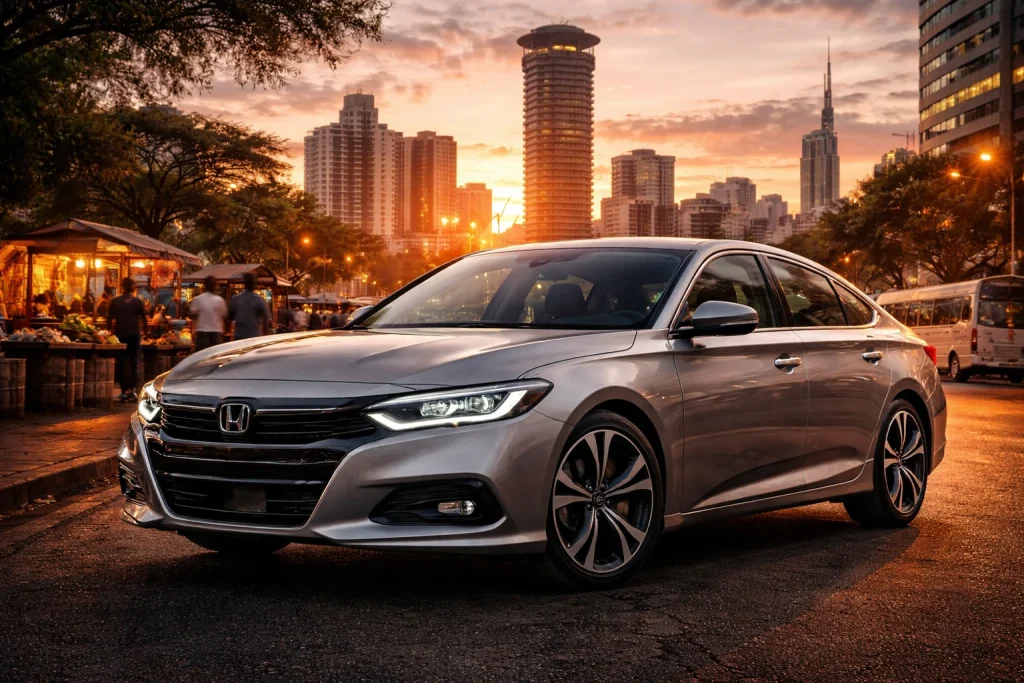Foreign used Hybrid cars have gained popularity in Kenya due to their fuel efficiency, lower emissions, and long-term cost savings. However, their higher initial cost often requires buyers to seek financing options. While hybrid car financing is still evolving in Kenya, there are several avenues to explore, from bank loans to asset financing and Sacco options. This article provides an in-depth guide to help you understand your financing options, eligibility requirements, and key factors to consider.
Why Hybrid Cars Are Gaining Popularity in Kenya
Before diving into financing, it’s important to understand why hybrid vehicles are becoming the preferred choice for many Kenyans:
- Fuel Efficiency: Hybrid cars consume less fuel compared to conventional petrol or diesel cars, reducing the cost of fuel.
- Environmental Benefits: They produce lower emissions, aligning with Kenya’s push for green energy and reduced carbon footprints.
- Government Incentives: The Kenyan government has reduced import duty on hybrid cars, making them more affordable compared to regular petrol or diesel vehicles.
- Resale Value: Hybrid vehicles tend to retain higher resale value due to increasing demand and fuel efficiency.
Financing Options for Hybrid Cars in Kenya
When purchasing a Foreign used Hybrid cars, financing plays a crucial role in making it affordable. Here are the main financing options available in Kenya:
1. Bank Auto Loans
Many Kenyan banks offer auto loans for vehicle purchases, including hybrid cars. The key banks providing financing include:
a) KCB Bank
- Loan covers up to 90% of the car’s value.
- Competitive interest rates of around 13% per annum.
- Repayment period of up to 60 months.
- Salary account holders may get preferential rates.
b) Equity Bank
- Offers up to 80% financing for both new and used hybrid cars.
- Interest rates range between 12-14% per annum.
- Requires proof of income and bank statements for eligibility.
c) Co-operative Bank
- Covers both new and second-hand hybrid vehicles.
- Loan repayment tenure of up to 5 years.
- Flexible repayment plans for employed and self-employed individuals.
2. Sacco Financing
Savings and Credit Cooperative Organizations (Saccos) provide financing options that are often more flexible than traditional banks. Some of the leading Saccos offering auto loans include:
- Mwalimu Sacco – Tailored for teachers and education professionals.
- Stima Sacco – Suitable for individuals in the energy and related sectors.
- Police Sacco – Offers financing for law enforcement officers.
Sacco loans often have lower interest rates (10-12%) and require members to have savings within the Sacco.
3. Microfinance Institutions (MFIs)
Some microfinance banks also provide financing for hybrid cars, especially for business owners and self-employed individuals. Examples include:
- Faulu Kenya – Offers car asset financing with flexible repayment terms.
- SMEP Microfinance Bank – Provides auto financing for SMEs and entrepreneurs.
- Musoni Microfinance – Known for digital loan approvals.
4. Asset Financing from Car Dealers
Some car dealerships provide financing solutions in partnership with banks or microfinance institutions. These dealer-backed financing options may include:
- Lower deposit requirements.
- Pre-negotiated interest rates.
- In-house financing solutions.
5. Government and Green Energy Loans
The Kenyan government and organizations promoting green energy offer financial support to encourage the adoption of hybrid vehicles. Some potential options include:
- Youth Enterprise Development Fund – Offers funding for young entrepreneurs investing in eco-friendly businesses.
- Kenya Green Energy Fund – Provides subsidized loans for individuals and businesses purchasing fuel-efficient vehicles.
Key Considerations When Choosing a Financing Option
When selecting the best financing option for your hybrid car, consider the following factors:
1. Interest Rates
Compare interest rates among banks, Saccos, and microfinance institutions to choose the most affordable option. Lower rates mean lower monthly repayments.
2. Loan Repayment Terms
Consider the repayment period and monthly installment amounts. Longer repayment periods may lower monthly costs but result in higher overall interest payments.
3. Deposit Requirement
Most financing options require an initial deposit of 10-30% of the car’s value. Choose a plan that aligns with your savings capacity.
4. Eligibility Criteria
Different lenders have varying requirements, such as proof of income, employment history, and credit score. Ensure you meet the lender’s conditions before applying.
5. Hidden Charges
Be aware of additional costs such as processing fees, insurance requirements, and penalties for late payments.
Conclusion
Foreign used Hybrid cars are an excellent investment in Kenya due to their fuel efficiency and environmental benefits. While their upfront cost may be higher, financing options from banks, Saccos, microfinance institutions, and car dealerships can make ownership more affordable. Before selecting a financing option, compare interest rates, loan terms, and eligibility criteria to make an informed decision.
By understanding your options, you can secure the best financing deal and enjoy the benefits of driving a hybrid car in Kenya.




